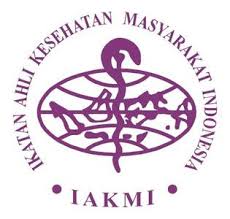Kepatuhan Konsumsi Tablet Tambah Darah Remaja Putri pada Sekolah Percontohan Kesehatan Reproduksi dan Seksualitas
Abstract
Abstrak :
Berdasarkan data RISKESDAS tahun 2018 menjelaskan bahwa 48,9% remaja putri di Indonesia mengalami anemia. Langkah pemerintah dalam upaya mencegah anemia pada remaja putri melalui program pembagian Tablet Tambah Darah(TTD) sesuai dengan PERMENKES RI No. 88 tahun 2014 tentang standar TTD bagi wanita usia subur dan ibu hamil. Capaian tertinggi TTD diterima oleh remaja putri di sekolah yaitu pada tingkat SMP sebesar 87,6%. Dari capaian tersebut hanya 1,4% remaja putri yang patuh mengkonsumsi TTD, sedangkan pada tahun 2024 pemerintah menargetkan kepatuhan TTD remaja putri menjadi 58%. Tujuan dalam penelitian ini mencari faktor yang mempengaruhi konsumsi TTD pada remaja putri. Penelitian ini dilaksankan di SMPN 22 Semarang sebagai sekolah percontohan kesehatan reproduksi dan seksualitas di Kota Semarang pada bulan November 2022. Metode penelitian ini survei analitik dengan pendekatan cross sectional. Pengumpulan data dilakukan menggunakan kuisiner. Sampel dalam penelitian ini 210 responden. Dari hasil penelitian hanya 25,2% remaja putri yang patuh mengkonsumsi TTD. Hasil analisis bivariat faktor yang berpengaruh adalah pengetahuan(0,000), sikap(0,014), dukungan orang tua(0,000), dukungan guru(0,024), dan dukungan tenaga kesehatan(0,000). Kemudian, faktor yang tidak berpengaruh adalah akses mendapatkan TTD(1,000) dan dukungan sekolah(1,000). Faktor paling dominan dalam penelitian ini adalah pengetahuan remaja putri mengenai TTD(p value 0,000; OR=5,982; 95%CI:2,875-12,445).
Abstract :
Based on RISKESDAS data for 2018, it was explained that 48.9% of young women in Indonesia had anemia. The government's steps in an effort to prevent anemia in young women are through the distribution of Blood Supplement Tablets (TTD) according to PERMENKES RI No. 88 of 2014 concerning the high blood pressure standards for women of childbearing age and pregnant women. The highest achievement of TTD was received by young women at school, namely at the junior high school level of 87.6%. From this achievement, only 1.4% of young women comply with taking iron supplements, while in 2024 the government is targeting that young women will comply with iron supplements to be 58%. The aim of this study was to look for factors that influence iron supplement consumption in young women. This research was conducted at SMPN 22 Semarang as a pilot school for reproductive health and sexuality in Semarang City in November 2022. The research method was an analytic survey with a cross sectional approach. Data collection was carried out using a questionnaire. The sample in this research is 210 respondents. From the results of the study, only 25.2% of young women were obedient in taking iron tablets. Then, the influencing factors were knowledge (0.000), attitude (0.014), parental support (0.000), teacher support (0.024), and health worker support (0.000). Then, the factors that have no effect are access to iron tablets (1,000) and school support (1,000). The most dominant factor in this study was the young women's knowledge of low blood pressure (p value 0.000; OR=5.982; 95% CI: 2.875-12.445).




